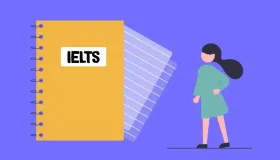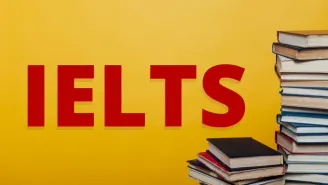Leisure Time Reading Answer Passage
Leisure Time Reading Answer Passage
Paragraph A. A raft of forecasts has been made in the recent decade, predicting the decline in the number of working hours coupled with a consequent increase in leisure time. It was estimated that the leisure revolution would take place by the turn of the last cent my with hours devoted to work railing to 25-30 per week, This reduction hits failed to materialise, but the revolution has, nonetheless, arrived.
Paragraph B. Over the past 30 to 41 years, spending on leisure has witnessed a strong increase, According to the annual family expenditure survey published in 1935 by the Office for National Statistics, the average household in the United Kingdom spent more on leisure than food, housing and transport for the very first time, and the trend is also set to continue upwards well into the present century.
Paragraph C. The survey, based on a sample of 6,500 households showed, that the days are long gone when the average family struggled to buy basic foods. As recently as 1969, family spending on food was approximately one third compared to 17% now. Twelve years later, there was a noticeable shift towards leisure with the percentage of household spending on leisure increasing to 9%, and that on food declining to 26%.
Paragraph D. The average household income in the UK in 1999 was £460 per week before tax, and average spending was £352.20. Of the latter sum, £59.70 was spent on leisure and £58.90 on food. On holidays alone, family expenditure was 6%, while in 1969 the proportion spent on holidays was just 2%. And whereas the richest 10% lashed out 20% of their income in 1999 on leisure, the poorest spent 12%.
Paragraph E. Among the professional and managerial classes, working hours have increased and, overall in the economy, record numbers of people are in employment. As people work more, the appetite for leisure activities has grown to compensate for the greater stress in life. The past 5 years alone have seen the leisure business expand by 25% with a change in emphasis to short domestic weekend breaks and long-haul short breaks to exotic destinations in place of long holidays. In the future, it is expected that people will jump from one leisure activity to another in complexes catering for everyone’s needs with gyms, cinemas, cafes, restaurants, bars and internet facilities all under one roof. The leisure complexes of today will expand to house all the leisure facilities required for the leisure age.
Paragraph F. Other factors fueling demand for leisure activities are rising prosperity, increasing longevity and a more active elderly population. Hence, at the forefront of leisure spending are not just young or professional classes. The 1999 family expenditure survey showed that the 64 to 75-year-old group spend a higher proportion of their income on leisure than any other age group. The strength of the “grey pound” now means that elderly people are able to command more respect and, thus, attention in the leisure market.
Paragraph G. And the future? It is anticipated that, in the years to come, leisure spending will account for between a third to a half of all household spending. Whilst it is difficult to give exact figures, the leisure industry will certainly experience a long period of sustained growth. Working hours are not expected to decrease, partly because the 24-hour society will need to be serviced; and secondly, because more people will be needed to keep the service/leisure industries running.
Paragraph H. In the coming decades, the pace of change will accelerate, generating greater wealth at a faster rate than ever before. Surveys show that this is already happening in many parts of Europe. The south-east of England, for example, is now supposedly the richest area in the EEC. The “leisure pound” is one of the driving forces behind this surge. But, sadly, it does not look as if we will have the long leisure hours that we had all been promised.
Let’s explore the questions and answers of the Leisure Time Reading answer passage.
Leisure Time Reading Answers with Sample Questions
Have you read the passage? Now, take the test and find Leisure Time Reading answers! Try to answer these questions by yourself before you sneak a peek at the answers given below.
Check Out Top 30+ IELTS Reading Practice Test Questions with Answers
Below are some top 30+ free IELTS Reading Practice test online questions with detailed answers to enhance your IELTS preparation online. We have provided sample passages for each test type for your reference.
- What Is Exploration Reading Answers
- Effects Of Noise Reading Answers
- The Discovery Of Baby Mammoth Reading Answers
- The Dead Sea Scrolls Reading Answers
- The Ring-Tailed Lemur Reading Answers
- Why We Need To Protect Polar Bears Reading Answers
- Nutmeg A Valuable Spice Reading Answers
- What Is Meaning Reading Answers
- Cutty Sark Reading Answers
- The Step Pyramid Of Djoser Reading Answers
- South Pole Adventurer Reading Answers
- The Future Of Work Reading Answers
- Ambergris Reading Answers
- Trees In Trouble Reading Answers
- Could Urban Engineers Learn From Dance Reading Answers
- The Flavour Of Pleasure Reading Answers
- The Value Of A College Degree Reading Answers
- Why You Should Delegate Tasks To Team Members Reading Answers
- Corporate Social Responsibility Reading Answers
- Forest Management In Pennsylvania USA Reading Answers
- Making Time For Science Reading Answers
- The Power Of Play Reading Answers
- Coastal Archaeology Of Britain Reading Answers
- How The Other Half Thinks Reading Answers
- Changes In Reading Habits Reading Answers
- The Forgotten Forest Reading Answers
- When Conversations Flow Reading Answers
- Attitudes Towards Artificial Intelligence Reading Answers
- The Ingenuity Gap Reading Answers
- A Bar At The Folies Reading Answers
- Booking A Wessex Cottages Holiday Reading Answers
- Sunset Tours Reading Answers
- Bird Migration Reading Answers
- Clutter Bugs Beware Reading Answers
- The Hidden Histories Of Exploration Exhibition Reading Answers
- Calisthenics Reading Answers
- Having A Lovely Time Reading Answers
- The Return Of Huarango Reading Answers
- Summer Activities At London Kew Gardens Reading Answers
- Computer Games For Preschoolers Reading Answers
- Extinct The Giant Deer Reading Answers
- Micro Enterprise Credit For Street Youth Reading Answers
- Plain English Campaign Reading Answers
- Glow Worms Reading Answers
- How To Prepare For An Interview Reading Answers
- Quiet Roads Ahead Reading Answers
- Sculpture Reading Answers
- Cornwall Reading Answers
- Latchkey Children Reading Answers
- Healthy Intentions Reading Answers
- Makete Integrated Rural Transport Project Reading Answers
- Allergy Testing Reading Answers
- Life Casting And Art Reading Answers
- Metropolis Movies Reading Answers
- The Bridge That Swayed Reading Answers
- The Discovery Of Uranus Reading Answers
- The Extraordinary Watkin Tench Reading Answers
- The Secret Schizoid Reading Answers
- The Sun A Mixed Blessing Reading Answers
- UK Companies Need More Effective Boards Of Directors Reading Answers
- Why Does Skin Wrinkle In Water Reading Answers
- Cleaner Abundant Ielts Reading Answers







